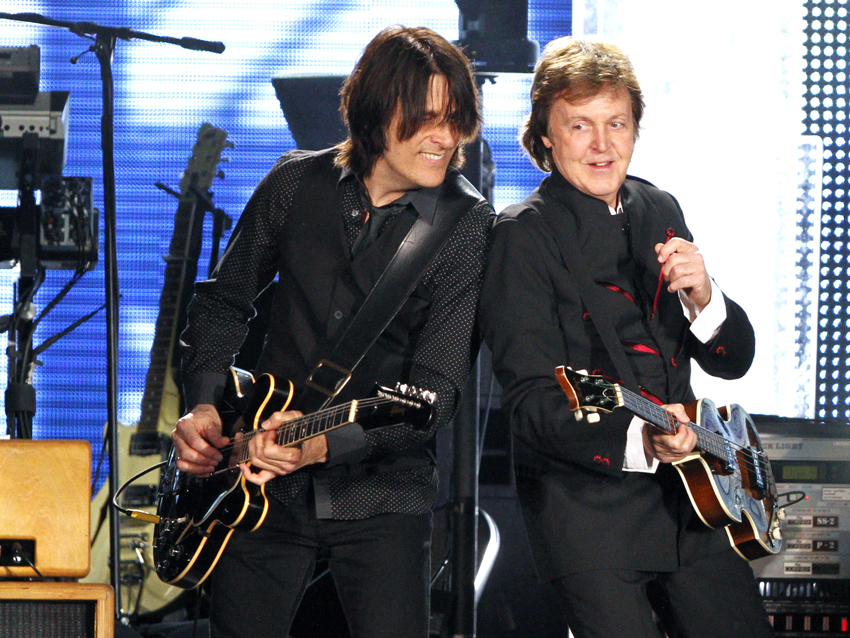
Rusty Anderson picks 14 essential guitar albums
Before revealing his choices for essential guitar albums, longtime Paul McCartney lead axeman Rusty Anderson wants to make one thing perfectly clear: “I’m a fan of a lot new bands," he says. "Wolf People, Grizzly Bear, Band Of Houses – they’re all doing some really cool things. But it’s hard to put them in the same category and on the level as the old stuff. The older stuff is just pretty classic."
Sharing the stage with Macca since 2001 has afforded Anderson the opportunity to explore the indelible guitar figures to what is perhaps the modern era's greatest body of songs. Fittingly, his view of what constitutes a great guitar album is based not on exceptional technical ability but rather on how the instrument figures into the collective whole.
“There’s kind of a great divide between amazing music and amazing guitar music," he says. "Picking an album that’s exceptional for what’s being done on the guitar is not the same as going to the Guitar Center and listening to somebody just fiddling about. A great guitar album is one in which the notes relate to one another in a compositional way. Put that together with tone, intent, the era and technology – a lot of elements come into play."
Pinning Anderson down for his list of essential guitar albums was no mean feat (although he did expand the usual number of 10 to a nice round 14): In addition to trotting the globe with McCartney, he's been putting the finishing touches on his first signature model for Gibson, the Rusty Anderson ES-335, due out in a few weeks. What's more, there's Rusty Anderson Afternoon, the new band he's put together with guitarist Matt McKenna, bassist Todd o'Keef and drummer Petur Smith. The group has issued their debut single, Effortless, which you can purchase on iTunes. For more info on Rusty Anderson, check out his website, as well as his Facebook and Twitter pages.
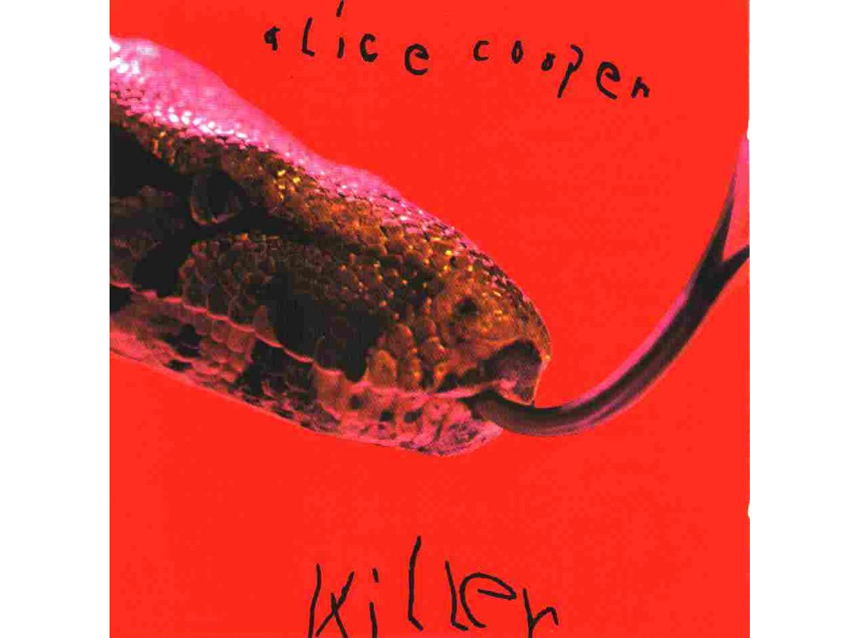
Alice Cooper - Killer (1971)
“The guitarists are Glen Buxton and Michael Bruce, although I’m not sure who did what. I think Michael was more of a songwriter who did some of the melodic stuff. But they were such a team, almost the ultimate guitar team, those two.
“This is another difficult one, because Love It To Death could easily make the list. But Killer is so vibey and hits me in all the right ways. You Drive Me Nervous is a standout track, with its psychedelic, reverb-like Jefferson Airplane sound – I’ve always liked it. There’s a cool punk feel to the sound and the playing. It predates punk, but the origins are there.
“The raw, almost amateurish aspect to the playing; Bob Ezrin’s production; the combination of Buxton and Bruce; and, of course, all of the alcohol that Alice was consuming – everything adds up for a dynamite album.”
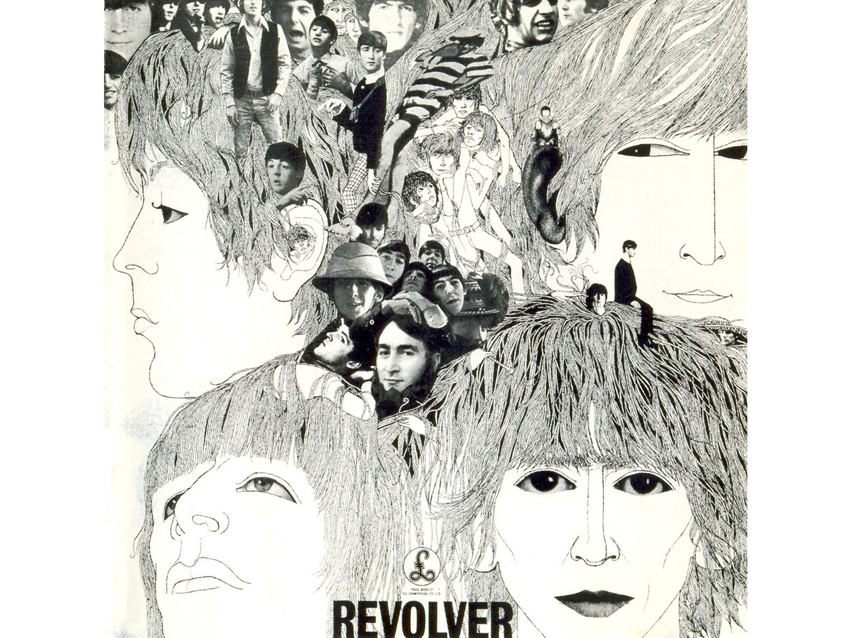
The Beatles - Revolver (1966)
“I grew up with the American version, so it was a while before I heard the proper album that The Beatles intended us all to hear. You know, on every single Beatles record, there are some amazing guitar bits, so choosing which album to spotlight can be hard. Revolver, though, has a particularly large amount of great guitar moments.
“And Your Bird Can Sing is such a weird, wonderfully hooky guitar riff. It’s Paul and George playing at the same time, and it almost sounds as if they’re playing through the same amp – that’s how seamless it is.
“Then there’s the backwards guitar on I’m Only Sleeping and Tomorrow Never Knows and all of the great tones that went along with them. It was a time of real exploration. Sonically, expression-wise, the choices of notes – it's all so good.
“Dr. Robert has a really simple but amazing rhythm guitar part, and that would be Lennon. And Paul played a lot of guitars on Revolver. His solos on Taxman are mind-blowing. I don't think that the first solo was flown in at the at the end, though. If you listen to it, there's a slight variation in the note choices. It grooves really hard."
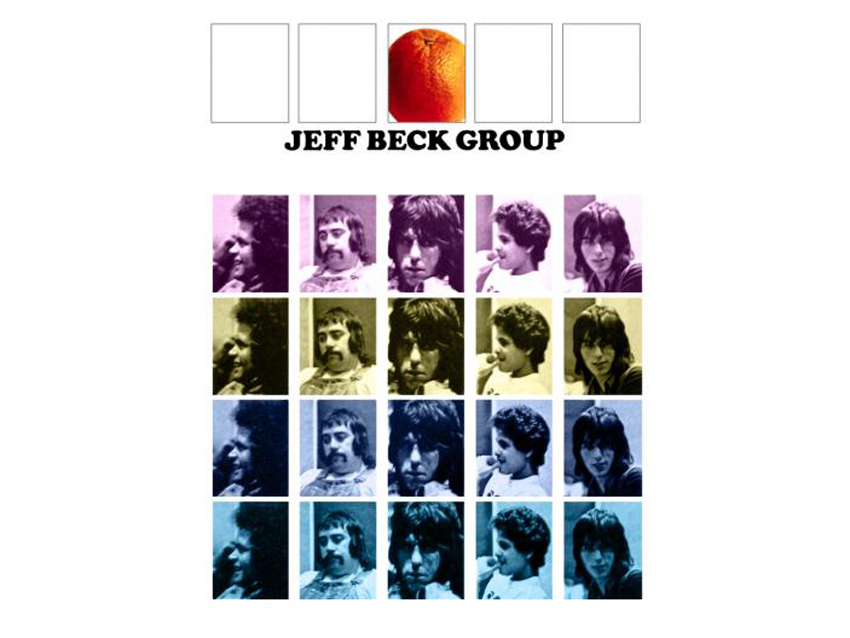
Jeff Beck Group - Jeff Beck Group (1972)
“There’s a lot of Jeff Beck records with amazing guitar playing – probably all of them, really. Beck, Bogart and Appice is not a great record, but the guitar playing is superb. And I really like where Jeff takes his guitar on this album; every take is just phenomenal.
“I met him for the first time when we went backstage at a Stones concert. I told him I was a big fan and that I stole some of his riffs, and he said, ‘I’ve got some new ones.’ [Laughs] When I mentioned that I loved the Jeff Beck Group album, he looked at me and said, ‘Ewww, it is? You like that?’ It was kind of a weird feeling, as if he reduced me to this tasteless peon who would like that sort of music; at the same time, it made me think that sometimes people don’t realize their own genius.”
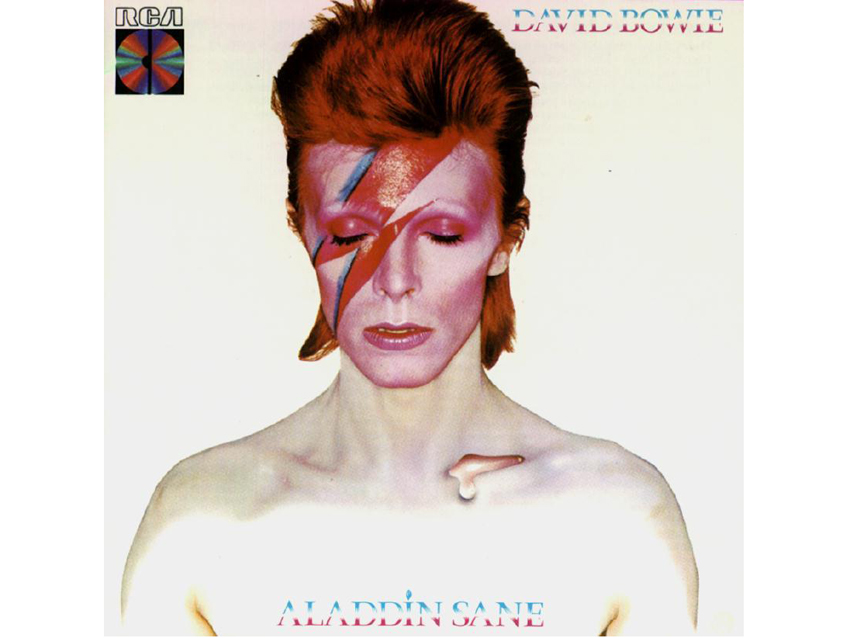
David Bowie - Aladdin Sane (1972)
“Mick Ronson is one of my all-time faves. He has a record called Play Don’t Worry, and his guitar playing and tones on that just reach perfection. Still, I prefer Aladdin Sane as an album of great songs.
“Pin-Ups is fantastic, too. It’s an album of cover tunes, but Mick’s playing is spot-on everywhere. He had such a cool sound. I imagine that a lot of it was just happenstance – he had that configuration of gear and simply discovered the tone – but he knew how to milk it.
“He was a sensitive, melodic player with true compositional talent. There was a lot of thought that went into his choice of notes. And he could be a bit of a show-off, too, playing solos with one hand. He was a star.”
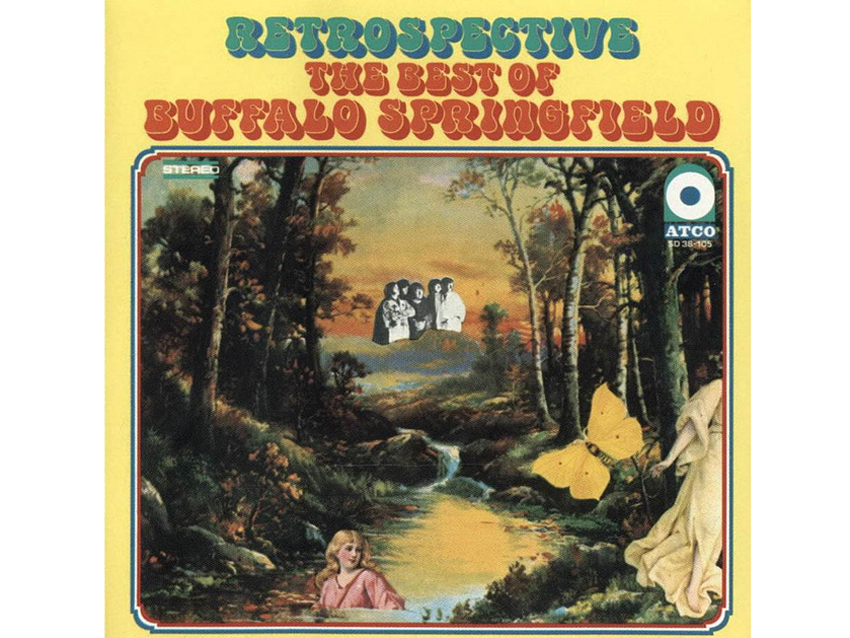
Buffalo Springfield - Retrospective: The Best Of Buffalo Springfield (1969)
“I could list the first Crosby, Stills & Nash record, which is wonderful, but I’m going to go with the Buffalo Springfield collection. The combination of Stephen Stills and Neil Young is amazing.
"Rock And Roll Woman has incredible guitar playing and some beautiful sounds. In some places, sonically, it's a little like Hendrix: They would use single-coil sounds, very springy, and then they’d come in with Big Muff, the bass pickup tones and the Bigsby arm. Stills would sometimes use the jazz tone on his Gretsch and milk that. He had a really good sense of using the blues and marrying that with the orchestral aspect of the guitar, that banjo-y midrange.”
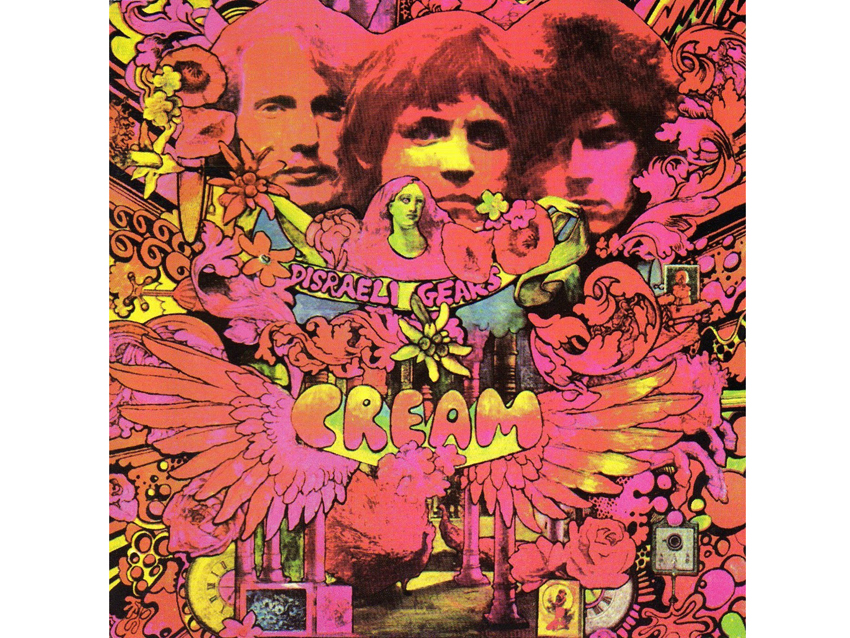
Cream - Disraeli Gears (1967)
“Not that Fresh Cream and Wheels Of Fire aren’t brilliant, because they are. Sonically, I think Fresh Cream is the standard for amazing guitar tones. But I was more excited about Disraeli Gears as a whole – everything about the record fit together beautifully.
“The songs are pretty stunning: Strange Brew, Outside Woman Blues, Sunshine Of Your Love, SWLABR – not a bad track to be found. There’s even a 12-string sound in Dance The Night Away that’s cleverly ‘60s, but it's not really. It all transcends the medium and becomes the archetype.
“I’d have to put the Blind Faith record in here, as well. Actually, it was hard deciding between Fresh Cream, Wheels Of Fire, Blind Faith and Disraeli Gears. They’re all great.”
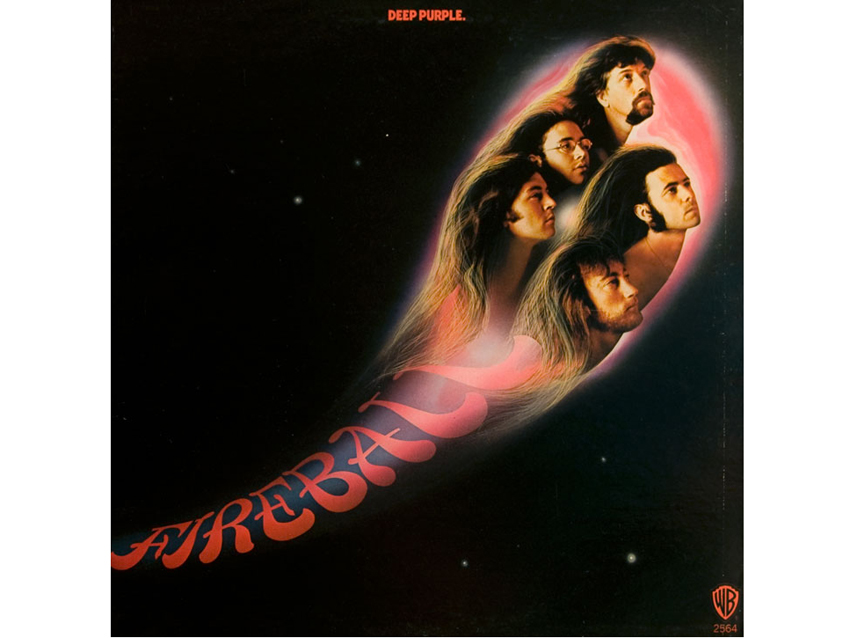
Deep Purple - Fireball (1971)
“This was another hard choice. It could have been Machine Head, and I do have to say that the solo on Kentucky Woman [from 1968] ranks as one of the greatest guitar solos ever.
“I don’t know if this is the best Deep Purple album ever, but stylistically, as a guitar record, it defines the sound very succinctly, one which people ripped off and turned into parody.
“There’s no hits on the album, but that doesn’t matter. Listen to the solo on The Mule – unbelievable. Strange Kind Of Woman has some beautiful playing, as well. Ritchie Blackmore has his sound together, and he was using the Strat in a way that really spoke.
“It’s interesting – guitarists and guitars, what makes their sound. When I think of Clapton playing a Gibson, to me, that’s Eric Clapton, even though he’s been playing a Strat for the last 50,000 years. But when I think of Jimi Hendrix and Ritchie Blackmore, the Strat’s their instrument.”
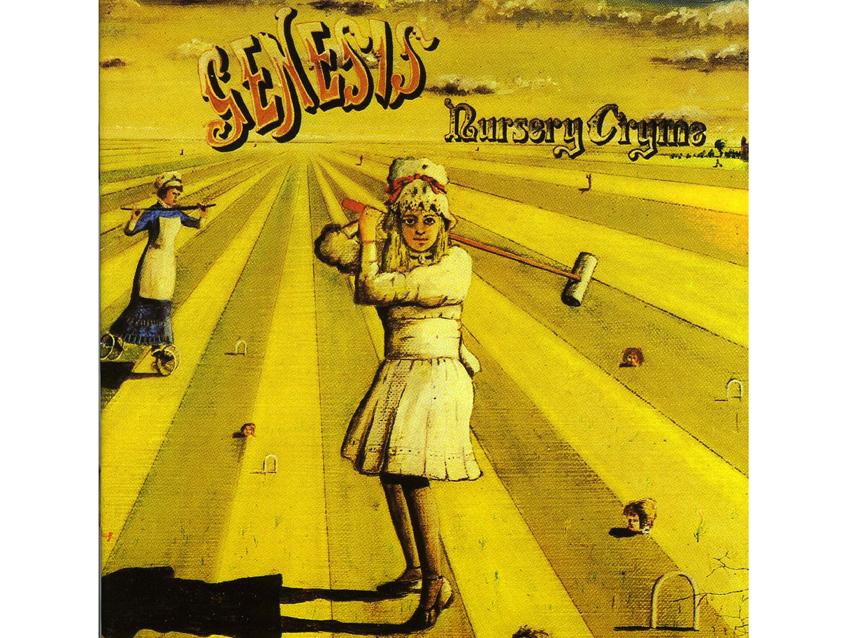
Genesis - Nursery Cryme (1971)
“This isn’t a guitar record per se, although there is some amazing playing on it. Steve Hackett was definitely influenced by Robert Fripp.
“I didn’t find this out until recently, but the band was really influenced by Family, who were big in England in the ‘60s and ‘70s, although they couldn’t get arrested in the States. I was kind of blown away by that fact and, at the same time, a little depressed, because I realized how much Genesis ripped off Family. Even so, they did it in a way that was more palatable and image-friendly… and better, in a way.
“Hackett is a very unique player. He’s more melodic than Fripp, but he’s no less bizarre. He was very much into sounds that were clean and sounds that were fuzzy, with nothing really in-between. He’d use the bass pickup on a Les Paul, but then he’d flip it with a fuzz box and get some interesting tones.
“Of all the records, this is more about the songs, the vibe and the charisma of the band, but I do like what Hackett is doing in the context of everything else.”
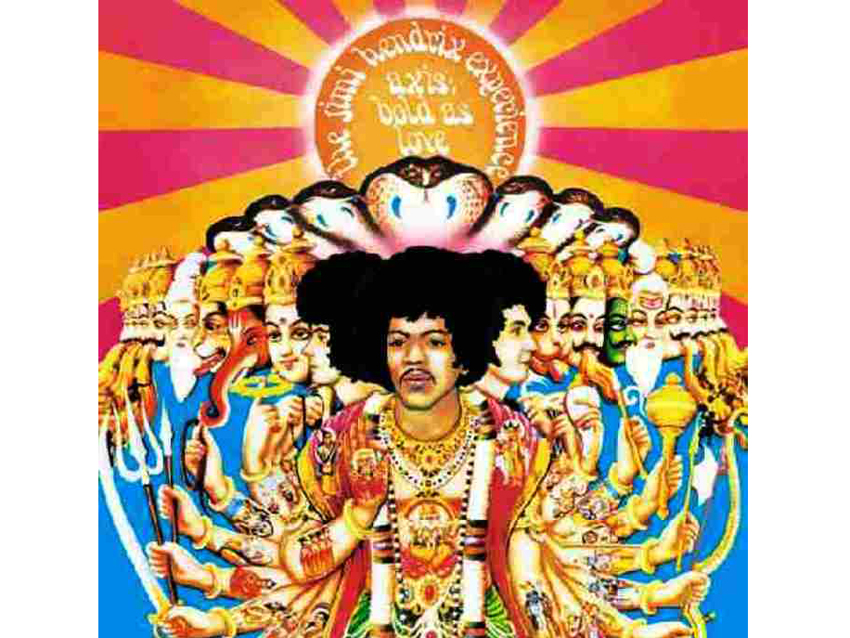
The Jimi Hendrix Experience - Axis: Bold As Love (1967)
“Even though I’m not ranking the albums sequentially, this one would be my top pick. It’s the guitar bible. Basically, it’s Jimi saying, ‘This is how it’s done. This is where the guitar can go, in all of the colors that are available.’ It’s like looking at a Rembrandt or a Van Gogh – his playing was that expressive.
“The sounds are incredible – they just leap out at you – and they’re probably helped by the tubes, the recording tapes, the fuzz boxes. Everything feels very alive.
“I got into the record when I was pretty young; I think I was seven years old, and I convinced my parents to by it for me when we were on vacation. It was probably the second album I ever owned – the first being Help! by The Beatles. The textures are so vibrant. It's such a rich tapestry of music, and it’s all driven by Jimi, his guitar and his resonant ideas.”
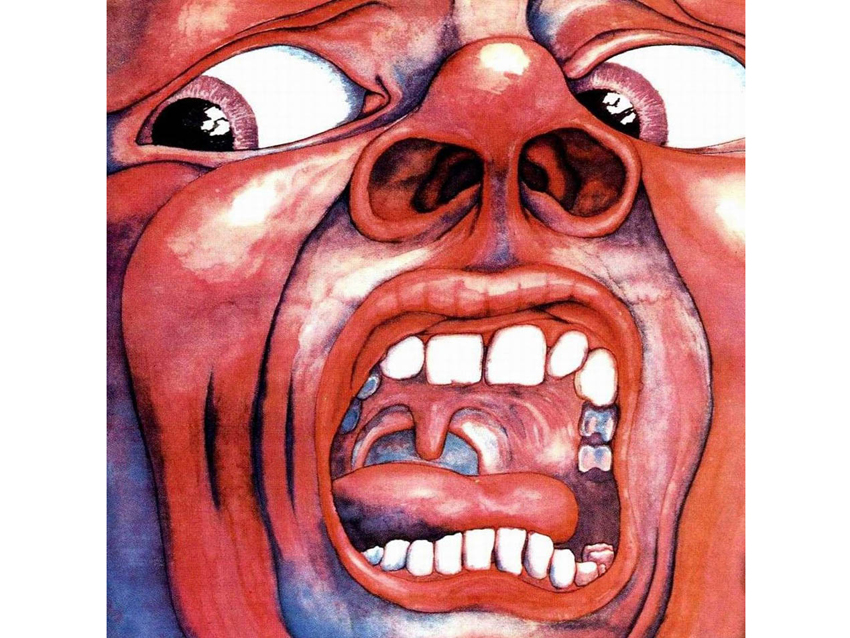
King Crimson - In The Court Of The Crimson King (1969)
“I’m not the biggest Fripp freak in the world, but if you take just a sliver of the stuff he’s done, it’s genius, and it’s influenced so many people. I also have to mention Adrian Belew here, who played in a later incarnation of King Crimson. I really liked his playing, which was very, very creative and extremely influential to me.
“I impressed with things that have their own ‘come from place’ – guitarists who start their own train of thought and aren’t following other players. Fripp is that in so many ways. You can look at a lot of different kinds of guitarists, and they take something here and there from him. So much of that began on this album.
“Greg Lake is fantastic here, as well. There are some things on the first ELP records I really love, but Greg fit in very nicely with King Crimson. We can give ELP some adjacent props in this spot.”
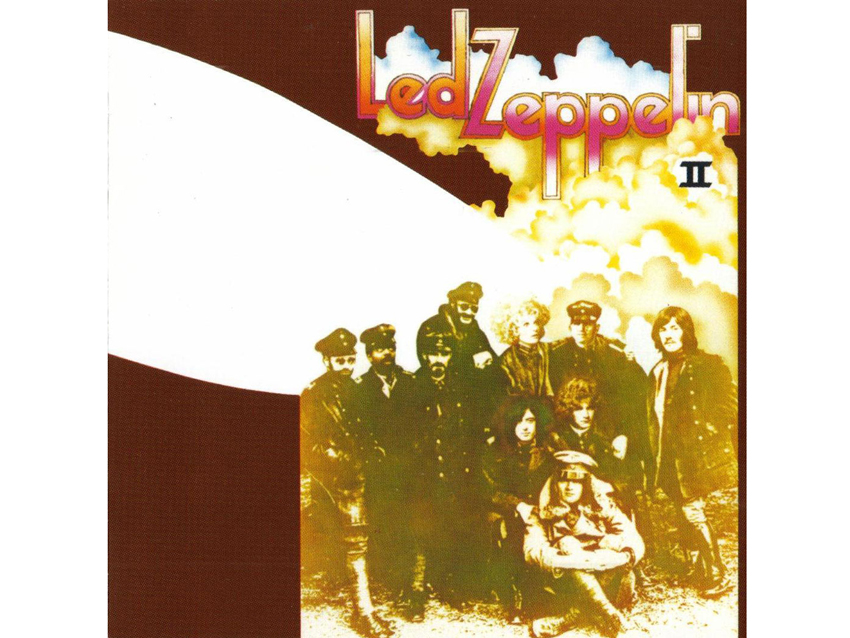
Led Zeppelin - Led Zeppelin II (1969)
“I have to include Zeppelin II. I mean, we’ve all heard it a billion times, but it’s truly one of the archetypal guitar albums in the universe. In so many ways, this album defines what a guitar should sound like. Jimmy did something new and different, and it still stands today.”
“It’s like the Jimi Hendrix/Stephen Stills thing: Jimmy found all of these tones and knew what to do with them. Ramble On has the beautiful twin solos, and the bit in What Is And What Should Never Be with the incredible slide playing. What can you say about genius?
“Moby Dick – the playing is so percussive, and it absolutely fits the mood of the song. And with Heartbreaker, you know, there’s a bit of sloppiness, but try to get anybody to play as cool and expressive and as nuanced – they won’t be able to match it. I dare anybody else to do it. They can't."
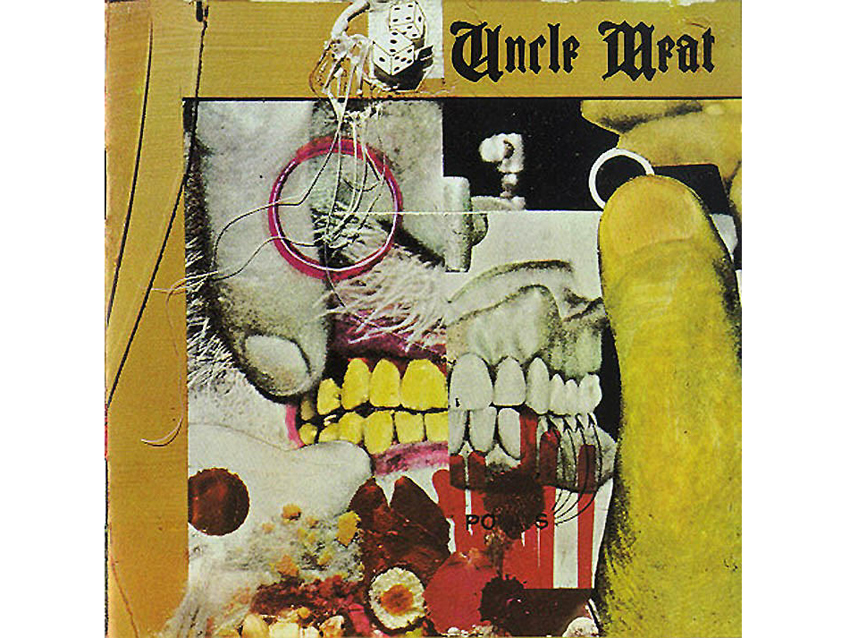
The Mothers Of Invention - Uncle Meat (1969)
“Uncle Meat and We’re Only In It for the Money are terrific – I know that Clapton played a little bit on that last one – but guitar playing-wise, there’s some crazy solos on Uncle Meat, so I have to go with that one.
“I got into Zappa when I was nine. My older sister was a bit influence on me, and she had all of these records. I even went to see Zappa – he was my first concert. I didn't know know how groundbreaking he was, but it was a pretty eye-opening experience."
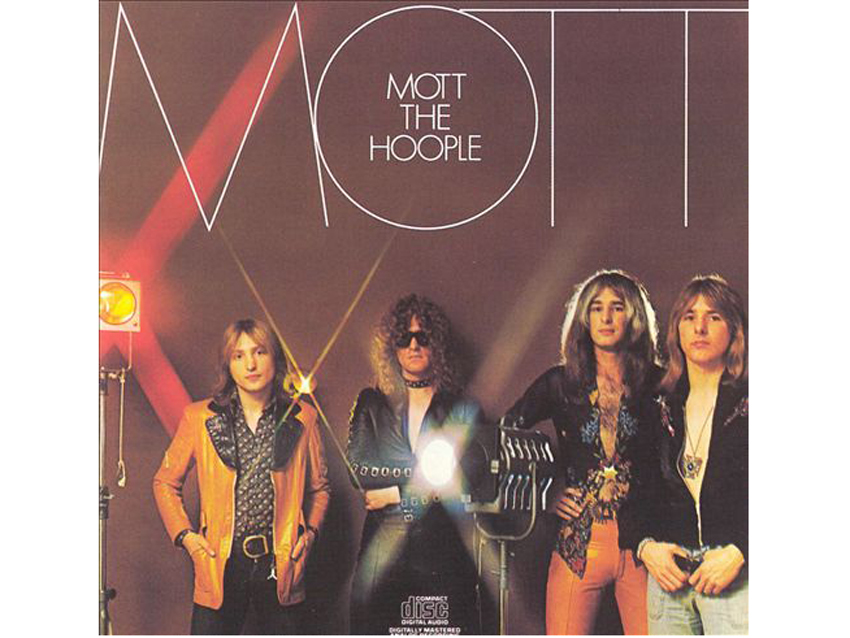
Mott The Hoople - Mott (1973)
“Good stuff. This one features All The Way From Memphis, Drivin’ Sister and Whizz Kid – really cool songs with such awesome guitar tones.
“Mick Ralphs was right in the pocket. It must have been a pre-heroin time for him, because once he started playing in Bad Company, he got a lot more flakey and uncontrolled; he wasn't even the same guitarist. Here, his playing is superb, and his sound – a little muddy but slick – works well. His pick attack was fat and clear and slinky, a little like Mick Ronson with just a slightly different shade.”
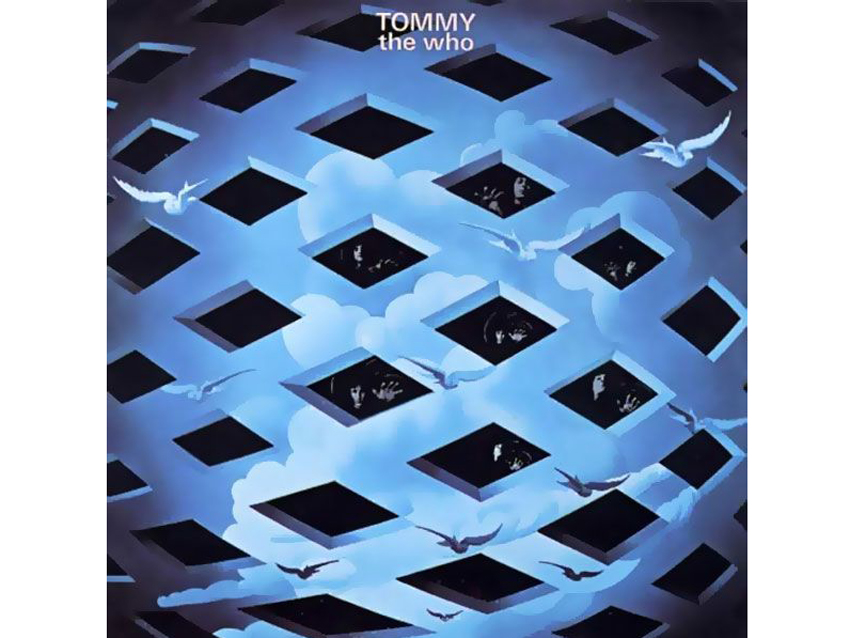
The Who - Tommy (1969)
“When this came out, it totally blew my mind. I learned every song on it. Everything about it was interesting and exciting. However, I don’t know if it stands the test of time, certainly not like Who’s Next, which is The Who’s absolute classic record – and probably a better record in many ways.
“Not to take anything away from Tommy, though. The ideas, the concept, the execution, the melodies and the guitar playing, especially – it’s all so original. The guitar solo on I’m Free and that first acoustic bit in It’s A Boy – that stuff really made an impression on me growing up.
“What I really love about it is the major-chord take on blues and the aggression Townshend puts behind it. That’s interesting to me, actually, because this is a melodic and sensitive record, and right afterwards The Who became very aggressive, especially live.
“Actually, I have to mention Live At Leeds, which was their next record. And Who’s Next – I could glue them all together and just say, ‘Fuckin’ A.’ Townshend was so torn after Tommy; he was probably schizophrenic or something. On stage he would be beating his own body up and swinging his guitar over his head – he’s just fucking crazy! The cross between the violence of that period and the sensitive, melodic nature of Tommy was incredibly engrossing.”

Joe is a freelance journalist who has, over the past few decades, interviewed hundreds of guitarists for Guitar World, Guitar Player, MusicRadar and Classic Rock. He is also a former editor of Guitar World, contributing writer for Guitar Aficionado and VP of A&R for Island Records. He’s an enthusiastic guitarist, but he’s nowhere near the likes of the people he interviews. Surprisingly, his skills are more suited to the drums. If you need a drummer for your Beatles tribute band, look him up.
"Reggae is more freeform than the blues. But more important, reggae is for everyone": Bob Marley and the Wailers' Catch a Fire, track-by-track
“Part of a beautiful American tradition”: A music theory expert explains the country roots of Beyoncé’s Texas Hold ‘Em, and why it also owes a debt to the blues
"Reggae is more freeform than the blues. But more important, reggae is for everyone": Bob Marley and the Wailers' Catch a Fire, track-by-track
“Part of a beautiful American tradition”: A music theory expert explains the country roots of Beyoncé’s Texas Hold ‘Em, and why it also owes a debt to the blues









